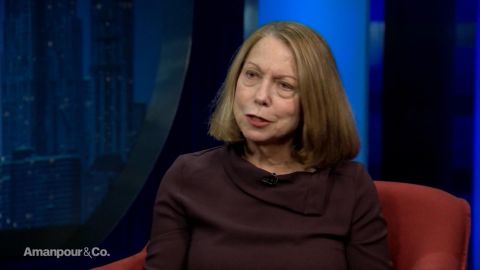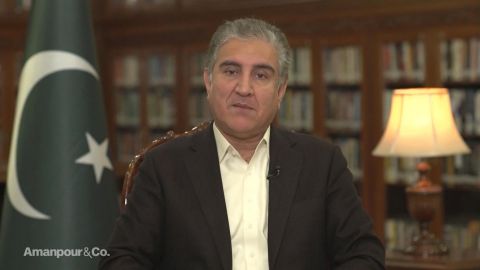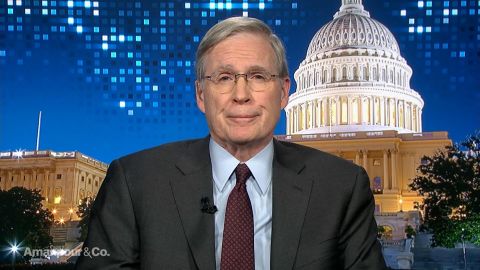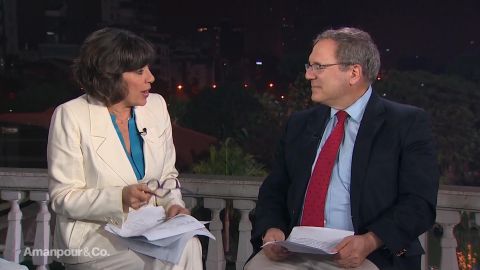Read Transcript EXPAND
CHRISTIANE AMANPOUR: David, we have had a bit of a roller coaster day. There were some expectations for this summit, not massive expectations but some and then it all came to a grinding halt. They didn’t even have lunch. We were left with the table, all its beautiful settings and name plates and nobody sitting at it. But we’ve had conflicting accounts as the day has worn on. The president saying that they demanded an entire lifting of sanctions. What did you think when he said that?
DAVID SANGER, NATIONAL SECURITY CORRESPONDENT, THE NEW YORK TIMES: Well, it made me wonder what kind of sanctions they all had in mind. But certainly, the United States has been fairly consistent in its position across administrations that you can’t relieve a core sanctions that the United Nations has put up against the North Koreans until they fully denuclearize, because that’s the only leverage the United States has. And even if you do partial lifting, then the Russians and the Chinese, as we’ve seen and as eight months since the Singapore meeting, the first summit, feel freer to lift their sanctions and it looks like they’ve been doing more trade with the North Koreans, not only in energy but in other arenas. The really fascinating element though came when the president was pressed during the news conference on what exactly it was that the North Koreans were offering to dismantle. And the answer was that they were willing to go dismantle the Yongbyon nuclear plants, when you see the most pictures of, it’s this vast but old plant, but that they would not discuss getting with facilities and Richmond facilities, facilities where you produce fuel outside of Yongbyon. Meaning, the president would have been in the position of proudly announcing that he had frozen their main plan but not accounting for everything else they could do to build weapons.
AMANPOUR: So, then several hours later, as the president is flying back to Washington, you have this very rare situation with North Korean foreign minister in a foreign country, (INAUDIBLE), right here in Vietnam, because they’re still here in Hanoi, just not so long ago went before the press, didn’t take questions but put that own version of events forward saying that, “No. In fact, we did not ask for the entire lifting of sanctions. We asked for partial lifting in — of sanctions, in return for,” he says, “permanently and completely dismantling all the nuclear material production facilities in the Yongbyon area, including plutonium and uranium in the presence of U.S. experts and technicians from both countries.” Now, I know that you say it doesn’t address the other facility.
SANGER: Sure.
AMANPOUR: Which has never been publicly disclosed.
SANGER: Right.
AMANPOUR: I know you asked the president that question. But the foreign minister of North Korea says, “This proposal was the biggest denuclearization measure that we can take at this present stage in relation to the current level of confidence between our two countries.”
About This Episode EXPAND
Christiane Amanpour discusses the US-North Korean summit with New York Times National Security Correspondent David Sanger and former U.S. National Security Adviser Stephen Hadley. She also talks nuclear-rtension in India and Pakistan with Pakistani Foreign Minister Shah Mehmood Qureshi. Jill Abramson joins Walter Isaacson to discuss accusations of plagiarism plaguing her new book.
LEARN MORE



